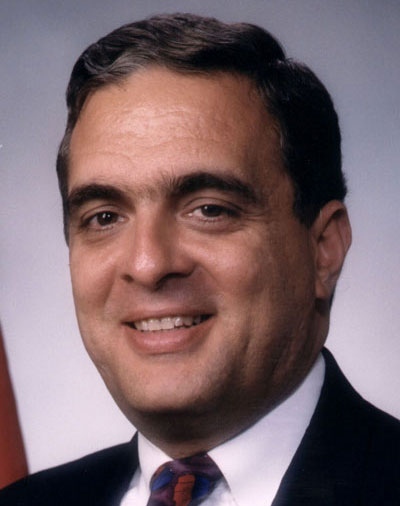Introduction
Following the 9/11 attacks, the United States government created a network of secret prisons outside its borders to interrogate suspected terrorists without the constraints imposed by international and domestic norms governing prisoners of war.
Some of those who were imprisoned were subjected to extraordinarily brutal interrogations, because CIA officials in Washington believed they were withholding information about future attacks on the United States. As it turned out, some of those who were harshly treated had no such information — the CIA had, in effect, bad intelligence — and others cooperated more usefully when they were being treated well.
A report issued by Senate intelligence committee Democrats on Dec. 9, the most comprehensive look at the program so far, asserts that the intelligence community gleaned little militarily-significant intelligence from the most brutal of these interrogations — which President Obama on Aug. 1 called “torture” — and states that the CIA repeatedly and knowingly exaggerated how valuable they were, by making false statements to the media, to Congress, the White House and the Justice Department.
Physicians for Human Rights, a nonprofit professional group based in New York that won the Nobel Peace Prize in 1997, said on Dec. 16 that the report confirms that U.S. health care professionals systematically tortured detainees, and that without their participation, “this illegal program might have been prevented.” It said these professionals not only breached ethics rules, but violated domestic and international law by “designing, directing, and profiting from the torture program,” engaging in unauthorized medical experimentation, intentionally inflicting pain, inappropriately using forced “rectal feeding,” and withholding needed medical care to promote cooperation. It called for amending laws and conducting a new inquiry, but Congress has little apparent interest in that option and the Justice Department has declined prosecutions.
What follows is a gallery displaying those who played key roles in setting and supporting the CIA’s policies and actions, along with highlights from the Senate report’s disclosures about their involvement.

George Tenet
Role: CIA director
Years: 1996 to 2004
After one CIA detainee died and another was threatened with a gun and a drill, Tenet set standards for CIA detentions and interrogations in 2003 that allowed diapering for prolonged periods, slaps, sleep deprivation, the withholding of food, loud music and isolation. His memo did not address other widely-used, brutal techniques, such as cold water dousings and light deprivation, and so these persisted. The inspector general said after interviewing Tenet in 2003 the director believed “if the general public were to find out about this program, many would believe we are torturers.” Bill Harlow, a spokesman for Tenet, declined to comment.

George W. Bush
Role: President
Years: 2001 to 2009
Bush, who signed an order authorizing CIA detentions six days after the 9/11 attacks, said in his memoir that he approved use of the most controversial interrogation techniques in 2002. When briefed in 2006 on CIA techniques — evidently just before delivering a speech officially disclosing the secret prison system — Bush “expressed discomfort with the image of a detainee, chained to the ceiling, clothed in a diaper, and forced to go to the bathroom on himself,” according to a CIA record quoted by Senate Democrats. In 2008, Bush vetoed a bill restricting the CIA to using less harsh interrogation methods approved by the U.S. Army.
Freddy Ford, Mr. Bush’s spokesman, referred to the former president’s comments to CNN last week before the report was issued. “We’re fortunate to have men and women who work hard at the CIA serving on our behalf,” Bush said. “These are patriots, and whatever the report says — if it diminishes their contributions to our country, it is way off-base.”

James Pavitt
Role: CIA deputy director for operations
Years: 1999 to 2004
Pavitt, when interviewed by the CIA inspector general, confirmed telling interrogators that in March 2003 he wanted to know what Khalid Sheikh Mohammed (KSM) knew “fast” and “did not discount” ordering his waterboarding in a telephone call to the overseas prison where he was being held. KSM was waterboarded at least 183 times, doused, slapped, and thrown at walls during his detention. President Obama has called the waterboarding torture and Senate Democrats said Pavitt’s assertions about the program’s success were riddled with inaccuracies. Pavitt in 2003 privately described public revelation of the secret CIA prisons as the agency’s “worst nightmare.” Neither Pavitt nor a spokesperson responded to requests for comment.

John Rizzo
Role: CIA acting general counsel
Years: 2001 – 2002 and 2004 – 2009
Rizzo called the White House in June 2003 to express alarm about a speech by President Bush in which the president suggested prosecuting “all acts of torture and…undertaking to prevent other cruel and unusual punishment.” According to the Senate report, Rizzo said that while the speech contained nothing “we can’t live with,” he wanted the White House to reaffirm that CIA practices “are to continue.” Rizzo wrote a letter in 2005 to the Justice Department that Senate Democrats said mischaracterized the purposes of barraging detainees with loud noise, using shackling, and forcibly shaving prisoners. He lobbied against the Detainee Treatment Act written by Sen. John McCain, and argued internally for destroying videotapes of CIA interrogations, the report said..
Rizzo in an email objected to the report’s characterizations of his actions, saying “I certainly can’t agree that they are ‘facts.’”
![[redacted] associate deputy](https://iw-files.s3.amazonaws.com/apps/2014/09/torturereport/img/mysteryman.png)
████ ██████
Role: CIA associate general counsel
Years: Unknown
After a senior Justice Department official raised questions about the pain inflicted by CIA interrogations, a senior lawyer at the agency — whose name was blacked out in the Senate Democratic report — responded in May 2005 with answers the lawyer said were drafted by the agency’s Office of Medical Services, which had advised the interrogators during their work. The answers falsely suggested that detainees were not doused in cold water and falsely claimed that detainees had not complained about swelling from prolonged shackling, according to the report. The reply further asserted that “all pain is subjective, not objective” and claimed that detainees received medical attention as needed, even though such treatment was sometimes deliberately withheld.

Jose A. Rodriguez Jr.
Role: director of CIA counterterrorism center; CIA deputy director for operations
Years: 2002 to 2004; 2004 to 2007
After brutally interrogating a key detainee for seven days in August 2002, a CIA team at a remote prison sent a message to Washington warning that they were approaching “the legal limit” and inviting top officials to visit or witness the sessions on a secure video. Rodriguez responded that speculation in cables on legal limits was “not helpful” given that guidelines had been set “at the most senior levels of the agency.”
“We did what we were asked to do, we did what we were assured was legal, and we know our actions were effective,” Rodriguez wrote Dec. 5 in the Washington Post.

Mike Hayden
Role: CIA director
Years: 2006 to 2009
Hayden claimed those doing the interrogating were carefully screened, but the group included individuals with a history of anger management issues, inappropriate behavior and admitted sexual assault, according to the Senate report. He also claimed medical treatment and food had not been deliberately withheld to promote cooperation, when they had, according to the report. After the CIA inspector general pressed for an independent review of the detainee program, Hayden opened a review of the inspector general. After repeatedly claiming the CIA held fewer than 100 detainees and learning in 2009 it was actually at least 112, Hayden told a subordinate to keep claiming it was 98, the Senate report said.
Neither Hayden nor a spokeswoman responded to requests for comment. In an interview broadcast by NBC on Dec. 11, said “I didn’t lie and I didn’t mislead Congress.” The CIA said Hayden viewed the discrepancy regarding the detainee tally as insignificant.

James Elmer Mitchell
Role: Interrogator of CIA detainees
Years: 2002 to 2009
Mitchell, identified in the report under the pseudonym Grayson Swigert, is a former psychologist at the Air Force’s survival school who helped set up the secret prison system, conducted some of the key interrogations and formed a company that collected more than $80 million to run the program between 2005 and 2009. According to the Senate report, he had no experience as an interrogator, no specialized knowledge of al-Qaeda, and no “relevant regional, cultural, or linguistic expertise,” but pressed for the “most coercive” interrogation methods and judged their use a great success. Those who used these methods were paid $1,800 a day, four times more than other interrogators.
When reached by phone, Mitchell declined to comment. In an interview with The Guardian, he said, “I’m just a guy who got asked to do something for his country by people at the highest level of government, and I did the best that I could.”

Bruce Jessen
Role: Interrogator of CIA detainees
Years: 2002 to 2009
Jessen, identified in the Senate report by the pseudonym, Hammond Dunbar, is a former Air Force psychologist who partnered with James Mitchell in setting up the CIA detainee system and conducting key interrogations. But he had no similar prior experience, and wrote in internal reports that waterboarding, slapping, walling, and sleep deprivation had succeeded because they elicited no useful information — easing worries that the detainees were hiding important secrets. At one point, he waited until detainee Khalid Sheikh Muhammad started talking before “pouring water over his mouth,” the Senate report says. A CIA psychologist at one point accused Jessen and Mitchell of “arrogance and narcissism” in insisting that “their way is the only way.”
Jessen could not be reached for comment. After the release of the report, Jessen told Reuters he was prevented from talking by a non-disclosure agreement. “It’s a difficult position to be in,” he said. “You want to set the record straight.”
Douglas Birch contributed to this report. Layout by Chris Zubak-Skees.
John Rizzo photo by Joe Newman (licensed CC BY-SA 2.0)
James Elmer Mitchell screengrab from Vice News
Bruce Jessen screengrab from ABC News
Read more in National Security
National Security
Flagship military university hired foreign officers linked to human rights abuses in Latin America
Senior U.S. officials say professors should have been more carefully vetted
National Security
National security findings you may have missed
The Center’s best national security stories from 2014

Join the conversation
Show Comments